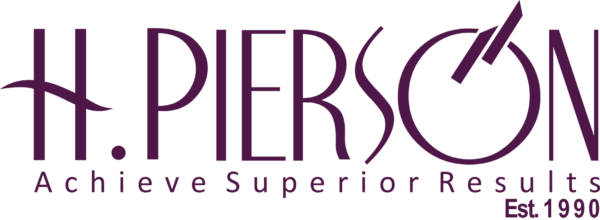Unlocking Strategy Success: The Power of KPIs and Key Metrics
October 19, 2023 Strategy
As the year 2023 steadily draws to a close, it’s an opportune moment to pause and reflect. For businesses, this prompts a critical question: how successful have we been in executing our strategic plans? In the fast-paced realm of strategic planning and execution, success transcends lofty visions and boundless ambition. It hinges on setting a clear course, continuously monitoring progress, and making data-driven decisions.
Vital to this journey are Key Performance Indicators (KPIs) and metrics, which bridge the gap between your strategic objectives and the path to achieve them.
In the following article, we will explore the essential elements of mastering KPIs for strategic success, offering you valuable insights to conclude this year on a high note and step into the next with even greater confidence.
Establishing Impactful KPIs within your Strategy:
When it comes to using KPIs in strategic planning, two extremes often emerge. Some plans lack metrics entirely, relying solely on immeasurable qualitative descriptions, while others become swamped with metrics, lacking a clear strategy for their effective use.
The key to success lies in striking a balance. At the pinnacle of your strategic plan, you’ll find overarching goals or lagging metrics, representing your ultimate destination—outcomes you can’t directly control but can improve over time with diligent effort. Supporting these lagging metrics are leading metrics, elements within your control that provide immediate insights and the power to drive change.
Imagine it as setting a New Year’s resolution to become healthier. You could trust your instincts or overwhelm yourself with countless health metrics. The optimal approach involves setting a clear lagging metric, such as losing 20 pounds, and pairing it with actively measurable leading metrics like exercise frequency, calorie intake, and sleep hours. An effective plan encompasses both elements, turning strategic planning into a journey where you monitor not only your destination but also the progress along the way.
Selecting the Appropriate Metrics and KPIs:
One common pitfall in metric selection is emphasizing leading indicators at the expense of lagging ones. While leading metrics are essential for immediate progress, an overabundance of them can lead to a tactical focus that misses the big picture.
Imagine diligently tracking your exercise routine to lose 20 pounds but neglecting your calorie intake. Similarly, focusing solely on driving website traffic without converting visitors into customers won’t fulfill your overarching goal of revenue generation.
To avoid these pitfalls, strive for clear alignment between leading and lagging metrics. If your chosen leading metrics don’t contribute to your overarching goals, you’re on the wrong track. Ineffective plans often blur the line between objectives and execution or get lost in activity-based metrics that don’t drive strategic success.
Recognizing these missteps and ensuring a strong correlation between selected metrics and strategic goals enhances your organization’s planning and execution processes.
Measure the Success of Your KPIs and Strategy:
In strategic planning, many organizations spend excessive time selecting metrics. It’s crucial not to get bogged down by this decision. What matters most is getting started and ensuring your chosen metrics serve one of three primary purposes: increasing, decreasing, or maintaining a specific value.
Begin with your current state and aim for incremental improvements. For instance, aim to improve your revenue by 10 percent. This provides a benchmark to adjust throughout the year.
Avoid overcomplicating the process; focus on setting realistic goals. We suggest a goal to achieve around 80 percent of your metrics. Aiming for an 80 percent success rate allows you to maintain momentum and refine your strategy. Reaching 100% may imply your goals weren’t demanding, while achieving just 20% could be discouraging, hinting at excessively difficult objectives.
When assessing the effectiveness of your plan, focus on completion of initiatives, KPI tracking, timeliness of updates, and project timelines. These aspects collectively contribute to measuring the success and effectiveness of your strategic plan.
Conclusion:
Remember, it’s not about finding the perfect metrics but about taking the first step, continuously improving, and making informed decisions on your strategic journey. With the wisdom shared by H. Pierson’s Strategy team, you’re well-equipped to master KPIs for your strategic success.
Author: H. Pierson Strategy Team


